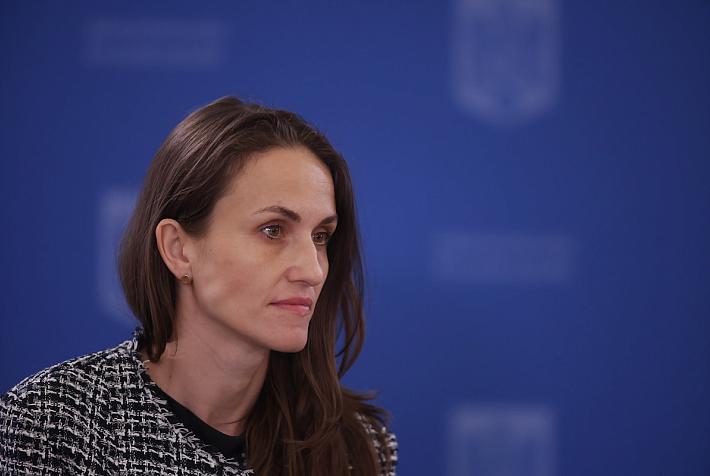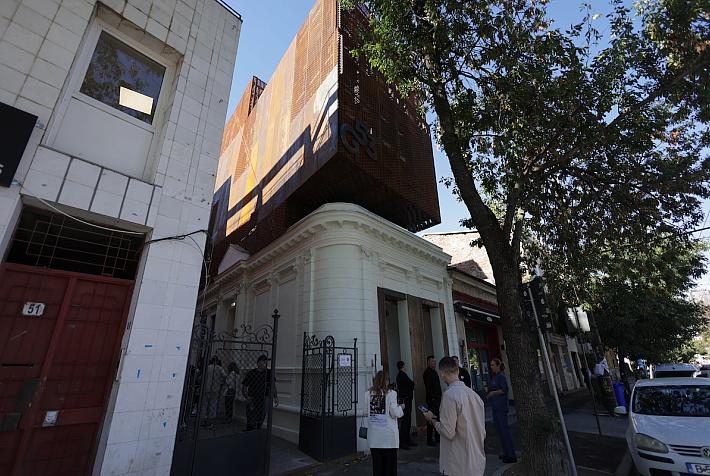Romanian film review - Secrets and numbers: Quod Erat Demonstrandum

Andrei Grusznicki’s Quod Erat Demonstrandum (QED), a stylish drama/thriller set in a scientists’ community in communism, is one of the finest films of last year and I've been happy to praise it a few times already in this column. I somehow missed its theatrical run last October (it was probably the usual distribution strategy: we-only-show-a-non-commercial-film-for-two-weeks-and-then-it's-done) but was excited to see that it's currently screened in Bucharest at cinema Studio and in Cluj at Victoria cinema. It will also premiere on HBO on Friday, 13 February at 8.15pm and will then be available on the station's online video site, HBO Go.
I was particularly impressed with QED not only due to its exquisite look and aesthetic choices but also thanks to its subject and dramatic approach. The only Romanian black-and-white feature of the last 26 years, QED is set in the late 1980s and focuses on the friendship between Elena and Sorin, a mathematician and a computer scientist. While the latter has just published an article in an American scientific journal without the state’s permission, Elena is waiting to be allowed to join her husband who had left for France. Meanwhile, Sorin asks Elena to carry a mysterious suitcase into France and they are both approached by a relentless Securitate agent, testing not only their mutual loyalty but also their principles.
Despite its explosive themes, QED is a poised, emotionally restrained film which pays just as much attention to the characters' surroundings and relationships as to their struggles with difficult choices. The impressive set design is not just endlessly fascinating in its detailed recreation of a bygone era but also an ideal means to characterize the protagonists (who never express their emotions or thoughts explicitly), their personal and professional personae. There is only one fault I can think of, namely the relatively anti-climatic ending. As a thriller, I think it would benefited from a bit more suspense and generally stronger emotions ("restraint" is written with a capital "R" in this film) but it's a mild complaint for such a well-written and mature production.
I had the pleasure to interview the director last year; we talked about QED and its international appraisal, his previous films and his work as a screenwriter and director. If you care to read up on the film's genesis, its fascinating and revelatory real-life background and its effect on audiences, I can warmly recommend to browse through it. Needless to say, I would also urge you to watch Quod Erat Demonstrandum in case you haven't yet, and preferably on a big screen. The exquisite images deserve nothing less.
By Ioana Moldovan, columnist, ioana.moldovan@romania-insider.com
[embed
width="560"
height="315"]
https://www.youtube.com/watch?v=lCKOjFkTtwk
[embed]











